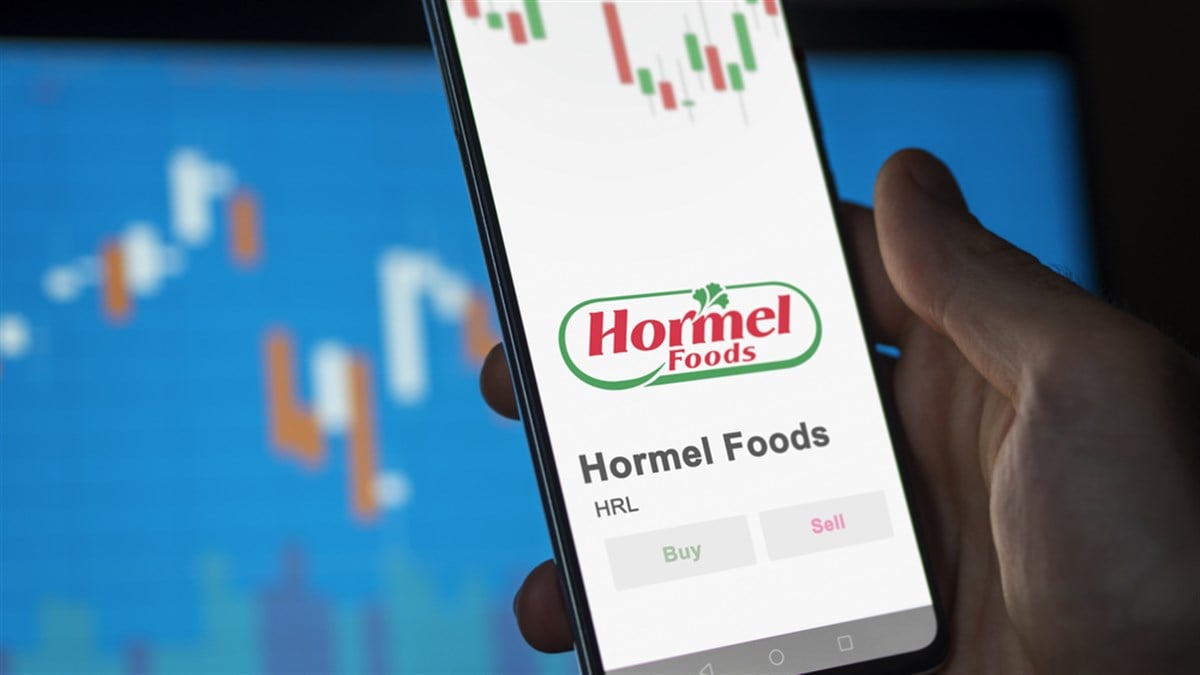
Hormel Foods Corporation (NYSE: HRL) has been synonymous with quality and innovation in the consumer staples sector for over a century. Established in 1891 in Austin, Minnesota, by George A. Hormel, the company initially focused on meatpacking. Over the years, Hormel diversified its portfolio, introducing iconic brands like Hormel, Spam, and Skippy. Innovative offerings lead Hormel to become a household name in the process.
A robust portfolio and financial standing
Hormel Foods boasts a diverse product range spanning perishable to shelf-stable items. The company caters to worldwide retail, food service, deli, and commercial customers. Hormel’s strategic focus on branded food products rather than commodity meat items has secured premium pricing and fostered customer loyalty.
In recent financial reports, Hormel Foods revealed resilient performance despite challenges. With a market capitalization of $17.13 billion, the company reported a revenue decrease to $12.11 billion for the fiscal year, attributed partly to a 2.6% drop in quarterly revenue, reaching $3.20 billion. The brand’s strength lies in its stable of leading brands, contributing to its competitive edge.
Analyst swings, executive moves, and institutional trust
Recent insights from notable analysts at Piper Sandler (NYSE: PIPR) and JPMorgan Chase & Co. (NYSE: JPM) have prompted adjustments in price targets for Hormel Foods. These adjustments have aligned with market conditions and Hormel’s current performance metrics. The fluctuations in these ratings suggest a dynamic assessment of the company’s trajectory, potentially influenced by evolving market dynamics or shifts in performance indicators.
Over the past six months, significant stock sales have been observed among the company’s upper echelons, including the CEO, Vice Chairman, company insiders, and the General Counsel. These sell-offs amount to hundreds of thousands of dollars, and millions of dollars in stocks have been divested in certain instances. Such notable movements within the top ranks imply strategic shifts or evolving perspectives regarding Hormel’s positioning. These sizable insider trading activities often signal adaptations in strategies or shifts in internal outlooks, drawing attention as pivotal indicators of the company’s internal sentiment.
Simultaneously, institutional investments from heavyweights like Vanguard Group Inc.’s Consumer Staples ETF (NYSEARCA: VDC) and State Street Corp (NYSE: STT) reinforce Hormel Foods’ position in the market. These significant investments underscore a strong vote of confidence in the company’s potential, amplifying the overall sentiment of trust and belief in Hormel’s prospects.
Challenges and opportunities
Despite its strengths, Hormel Foods faces challenges that are typical of the industry. Volatile commodity prices, including pork, turkey, beef, and nuts, pose risks to profitability. Intense competition from industry giants and niche players demands continuous innovation and market adaptation.
However, opportunities abound. International expansion, particularly leveraging recent investments in Southeast Asia through acquisitions like Garudafood, presents avenues for growth. The rising trend in snacking and plant-based protein markets provides fertile ground for product innovation and market capture.
Strategic initiatives and projections
Hormel Foods’ future hinges on its strategic initiatives. Emphasizing enterprise transformation, modernization, and cost-saving measures, the company aims to bolster analytics, customer service, and process efficiency.
Analyst projections hint at a potential decrease in the stock’s value, coupled with challenges in revenue growth due to inflationary pressures and increased expenses. However, the brand’s robust market position and strategic investments may pave the way for future resilience.
Hormel’s recipe for market mastery
Hormel Foods emerges with a potent blend of strengths, encompassing a sturdy brand portfolio, a wide-ranging product diversity, and a rich history steeped in innovation. Strategic acquisitions and a devoted customer base further strengthen its market prowess.
However, vulnerabilities loom within Hormel’s framework. The company grapples with susceptibility to the inconsistent nature of commodity prices and reliance on pivotal customers, raising concerns about profitability. Inflationary pressures nudging up operational costs also dent the company’s financial landscape.
Amidst these challenges lie numerous opportunities beckoning Hormel’s expansion. Venturing into untapped international markets, capitalizing on recent acquisitions, and harnessing the escalating demand in snacking and plant-based segments present promising avenues for robust growth.
Hormel Foods Corporation is a seasoned player in the food industry, navigating challenges while eyeing growth opportunities. Its strategic focus on innovation, brand strength, and diversification underpins its resilience. Challenges like volatile markets and competitive pressures demand agility and proactive strategies.
As Hormel Foods charts its course, investors and industry observers witness a balance between leveraging established strengths and adapting to ever-evolving market dynamics. The brand’s future trajectory will depend on its ability to navigate challenges, capitalize on opportunities, and sustain its legacy of quality and innovation.









